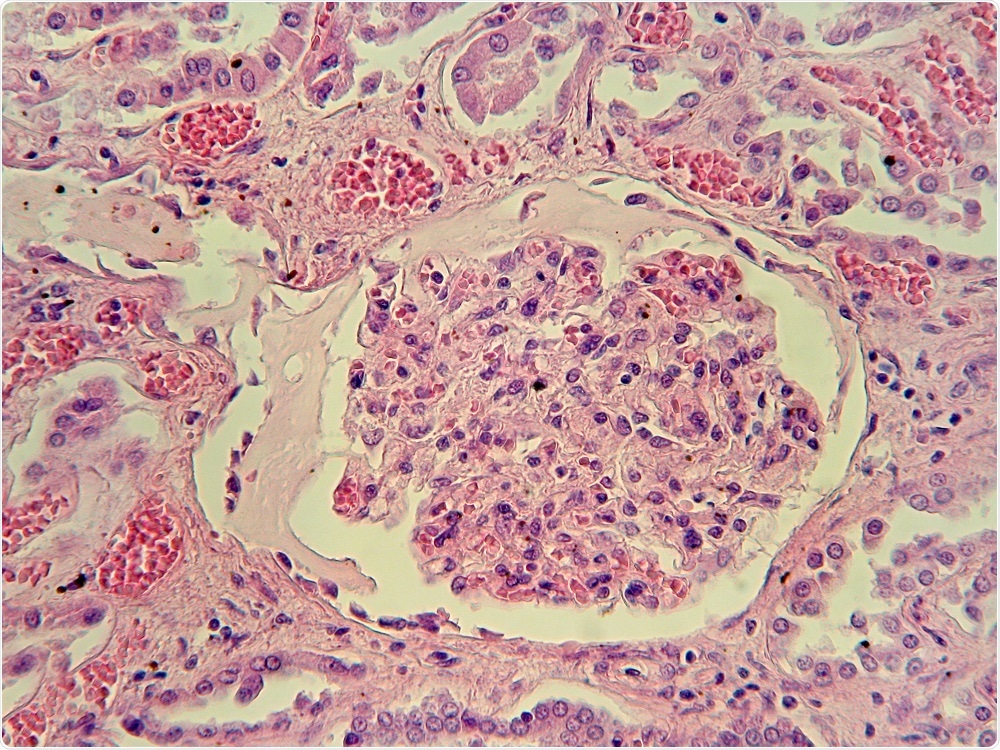Scientists have developed a screening tool for identifying compounds that restore functionality of the protein that is dysfunctional in Alport syndrome.
 Credit: Jubal Harshaw/Shutterstock.com
Credit: Jubal Harshaw/Shutterstock.com
It is hoped that the finding will ultimately lead to the development of corrective therapeutics for Alport syndrome, and other, currently incurable hereditary condition.
Alport Syndrome is a hereditary kidney disease that affects the glomerular basement membrane within the filtration system of the kidney. This allows blood and proteins to escape into the urine and ultimately leads to end-stage kidney disease and hearing loss.
Patients usually develop chronic kidney failure by the age of 25 years. Although there are some treatments available that can slow the progression of Alport Syndrome, such as ACE inhibitors, a corrective treatment has yet to be found.
The causal factor in Alport Syndrome is a genetic mutation in the gene encoding chains of collagen IV that prevents them associating into a trimer.
Since trimer formation is necessary for collagen IV to be incorporated into the glomerular basement membrane in the kidney, the mutation results in the membrane becoming leaky.
It no longer forms a physical barrier against leakage of blood components into the urine. In order to cure Alport Syndrome, a treatment is needed to restore collagen IV functionality.
The first step in the development of such a treatment is to identify potential drug candidates by screening compounds for their ability to correct the aberrant collagen IV function. Currently, there is not a system in place for such screening, and so it is a costly and labour-intensive process.
Researchers at Kumamoto University have developed a novel methodology for rapidly screening numerous compounds for their ability to enable mutated collagen chains to form trimers. They fused the collagen chains to fragments of the enzyme nanoluciferase.
On trimer formation luminescence occurs, which provides a measurable indicator of collagen IV functionality. The system detects collagen IV functionality with higher sensitivity than has been achieved previously and makes it possible to analyze several potential drug candidates simultaneously.
This research should provide a pathway to develop drugs for hereditary diseases, such as Alport Syndrome, that are currently incurable."
Hirofumi Kai, Professor at Kumamoto University
Sources:
- https://www.eurekalert.org/pub_releases/2018-03/ku-ahs030718.php
- http://www.cell.com/cell-chemical-biology/fulltext/S2451-9456(18)30043-6